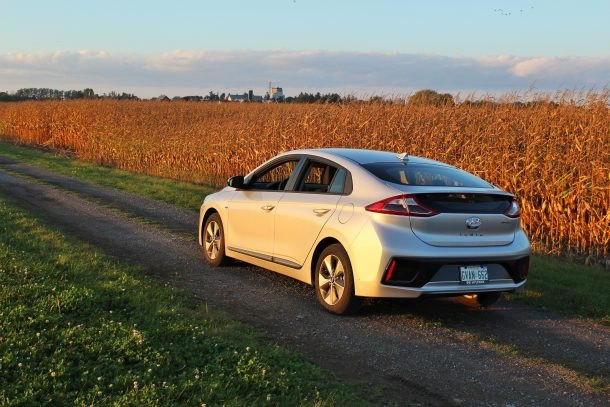#HyundaiIoniqElectric
The Country's Cheapest Normal* Electric Breaks Out of California
That asterisk exists in the headline because the Smart EQ Fortwo is not a vehicle many families would consider useful as a lone driveway denizen. With two seats and a range of — wait for it — 58 miles, the Smart brand’s city runabout manages to be more impractical that the late, unloved Mitsubishi i-MiEV. A difficult feat!
Moving up the practicality ladder, EV buyers looking for better range and a backseat now have a new option for low-priced motoring. Assuming, that is, that they live in one of the 13 states that signed on to California’s emissions laws.
One of the Market's Least Expensive EVs Is Due for a Range Bump
Happen across a Hyundai Ioniq in your daily travels, and it’ll almost inevitably be a hybrid or plug-in hybrid model, not the fully electric variant. That’s because, unless you live in California, the Ioniq Electric is off limits. For now.
With a range that might have once impressed and an entry price starting below $30,000 before government incentives, the Ioniq Electric is an affordable five-door for those who aren’t concerned about brand snobbery or lengthy road trips. Still, Hyundai knows that models that don’t compete, don’t sell. That’s why the little hatch will soon be able to go further on a tank of charged particles.
The Dead Zone: New Roadside Service Sees Electric Hyundais Take One for the Team
Reading about Hyundai’s new customer service program, it’s hard not to think of the M*A*S*H episode where a supply shortage forces the surgeons to donate their own blood to the patients they’re operating on.
That’s very similar to how Hyundai Canada’s just-announced “Charge Here” service works. Unlike in the United States, where EV drivers stranded with a drained battery can pick up the phone (in some markets) and call AAA for a top-up, no such service exists in the Great White North. With its first electric model now plying the country’s roadways, the automaker figured the best way to help stranded Ioniq Electric drivers was with other Ioniq Electrics.


















Recent Comments